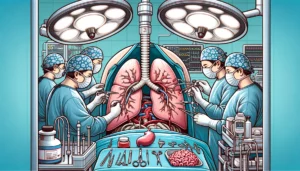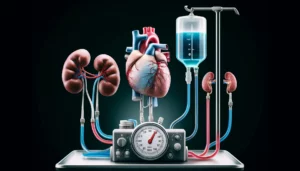
A Modified Low-Priming Cardiopulmonary Bypass System in Patients Undergoing Cardiac Surgery with Medium Risk of Transfusion: A Randomized Controlled Trial
This study evaluates the FUWAI-SAVE system, a modified low-priming cardiopulmonary bypass (CPB) system, in reducing perioperative blood transfusions in adult patients undergoing cardiac surgery with intermediate transfusion risk. Conducted as a single-center, single-blind, randomized controlled trial, 360 patients were divided into an intervention group (FUWAI-SAVE) and a control group (conventional CPB). Results showed the FUWAI-SAVE system significantly reduced red blood cell transfusion rates and amounts during the peri-CPB period without increasing major complications, indicating its potential in improving blood management in cardiac surgery.










